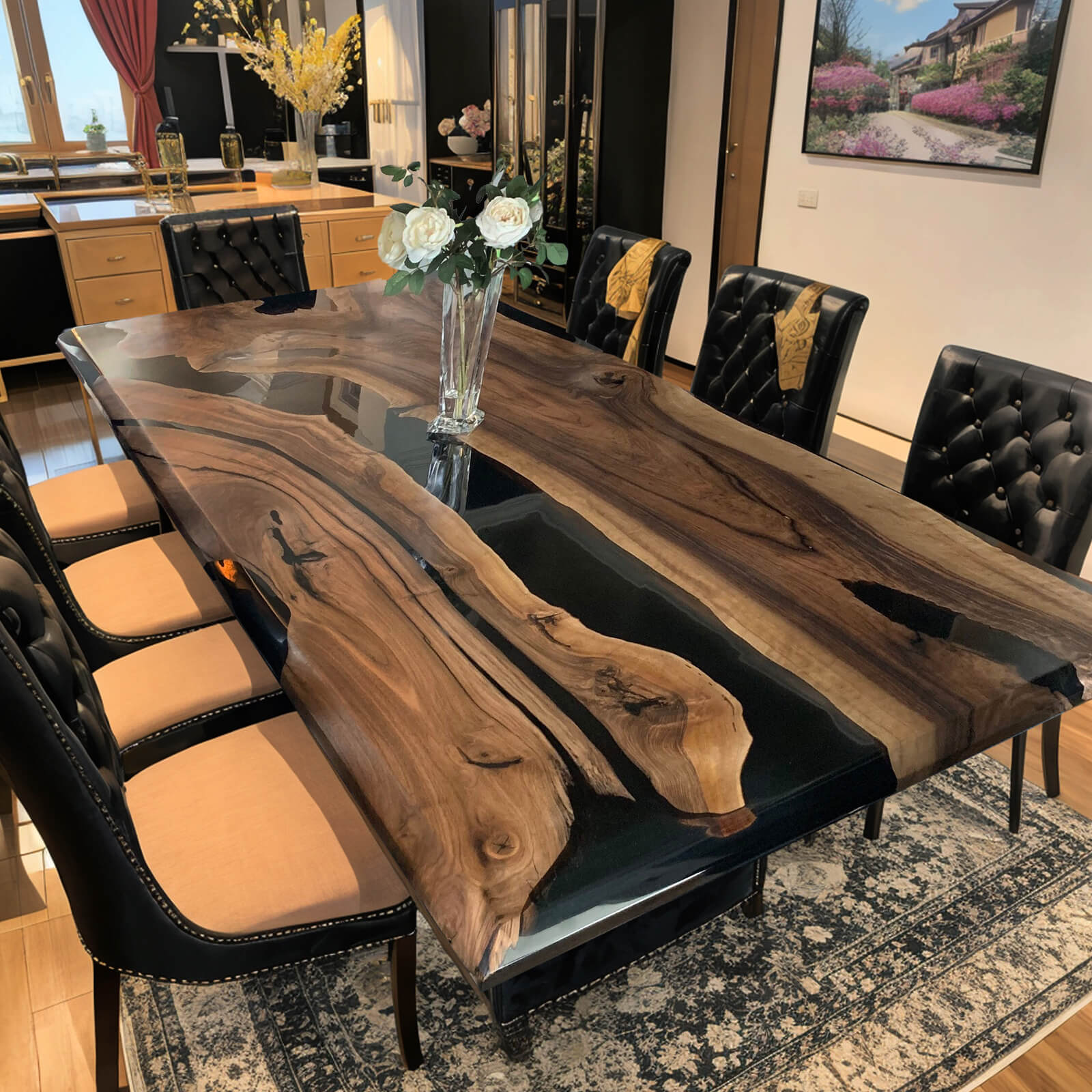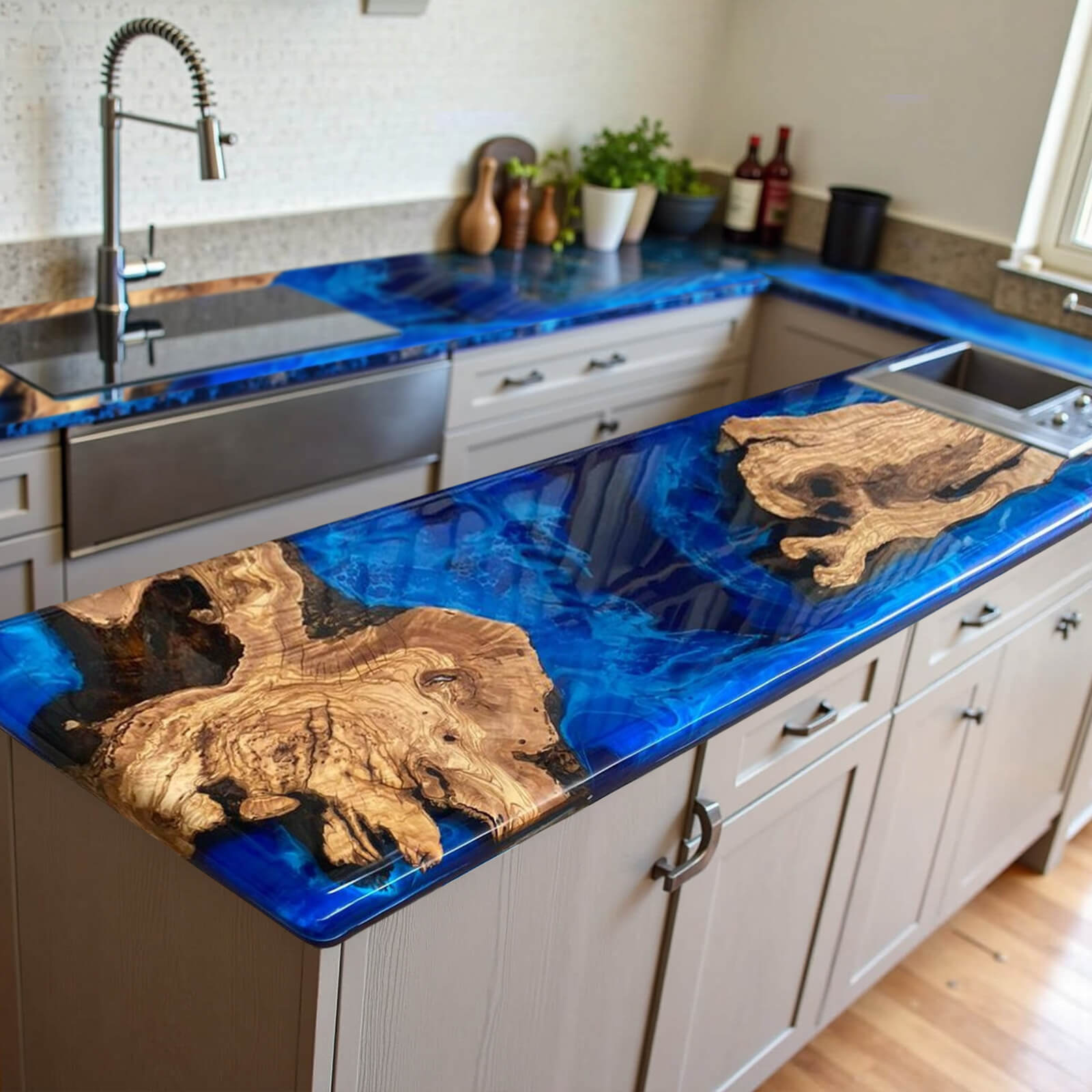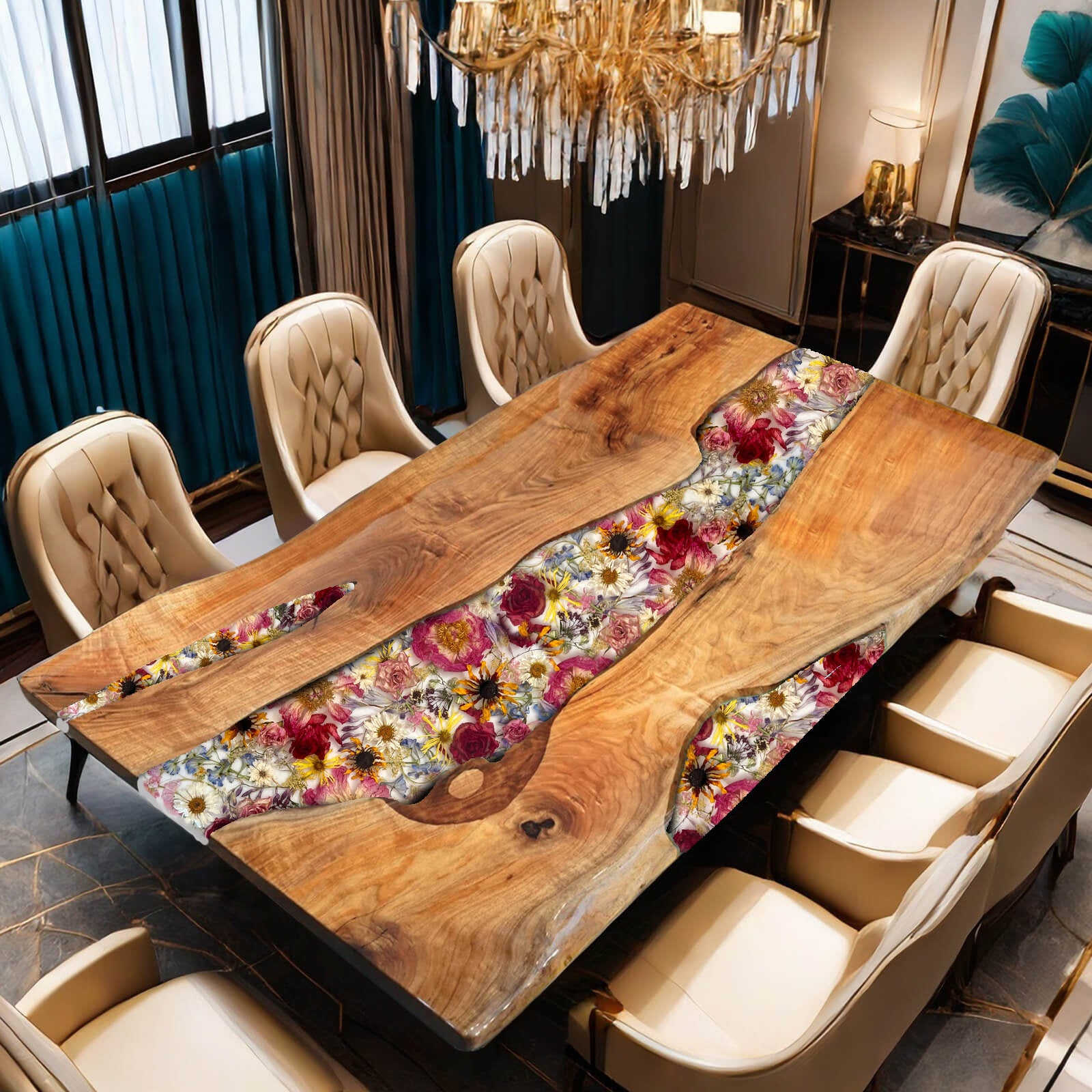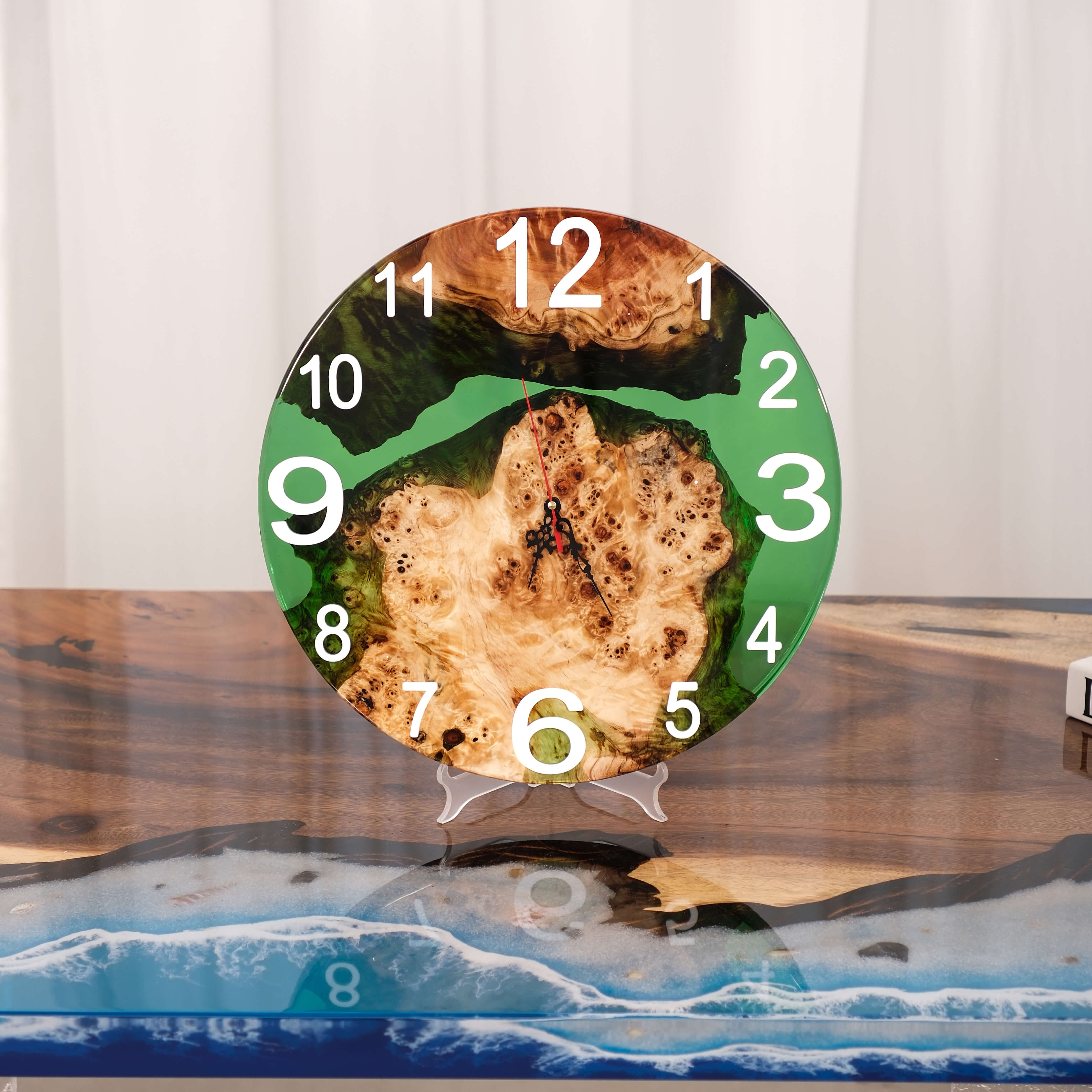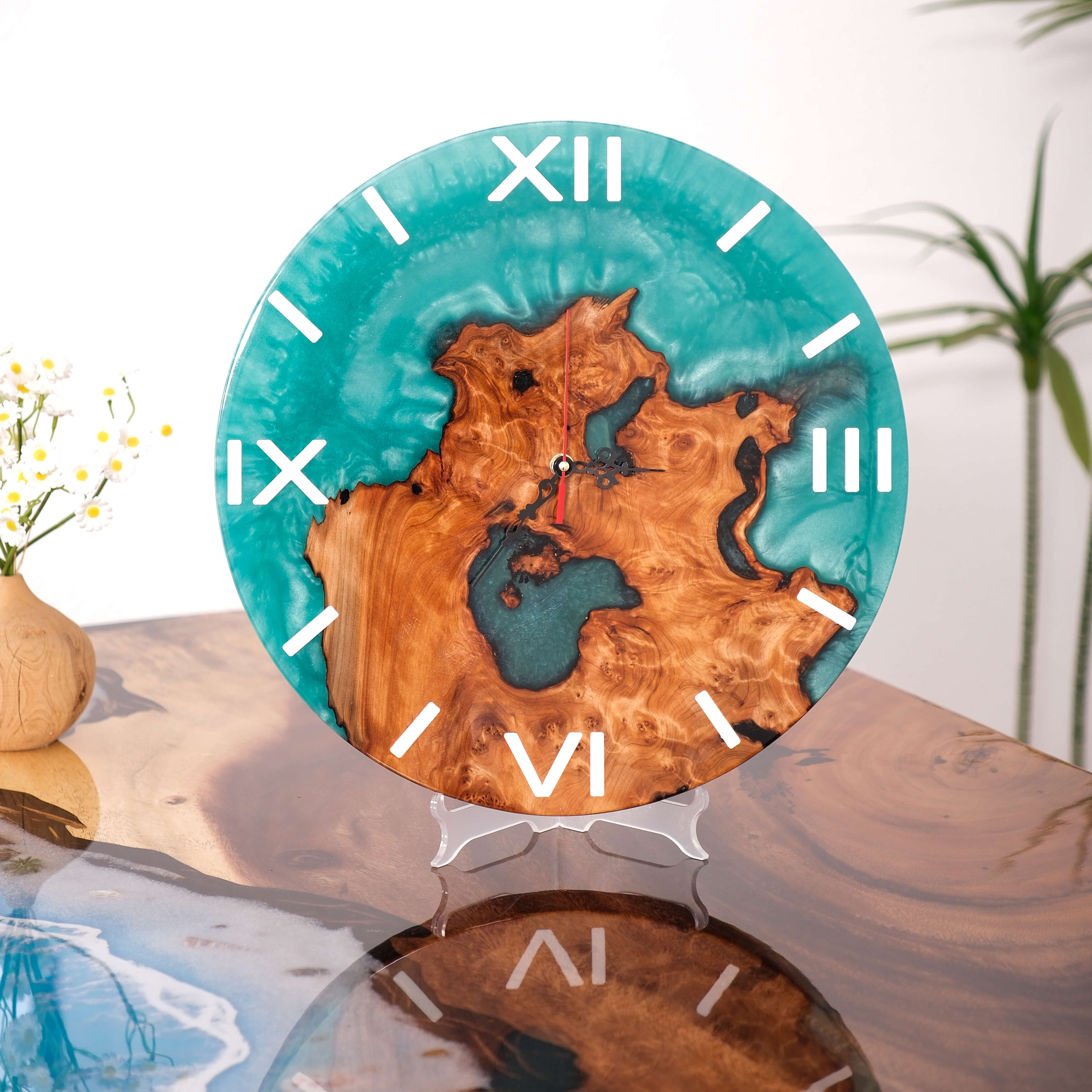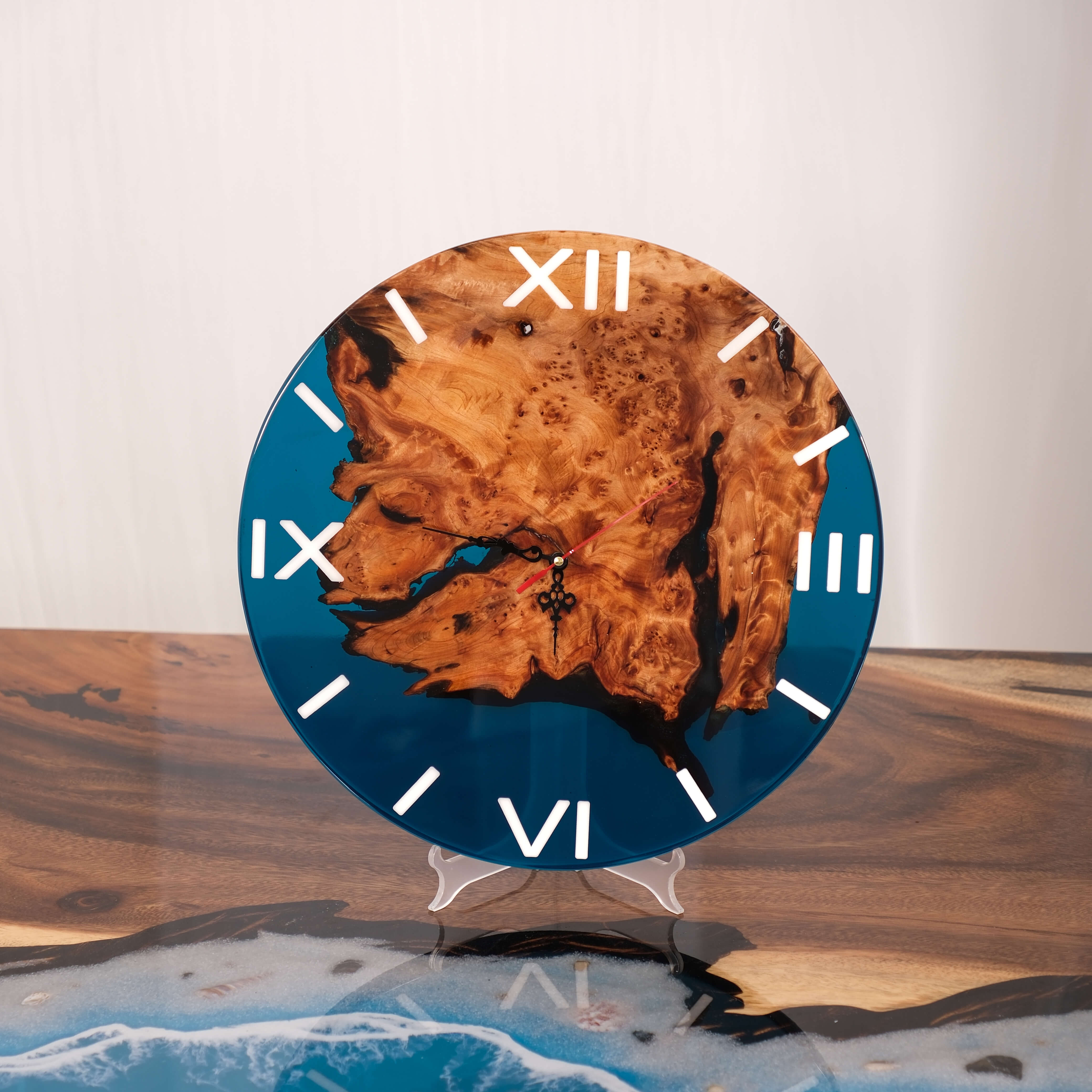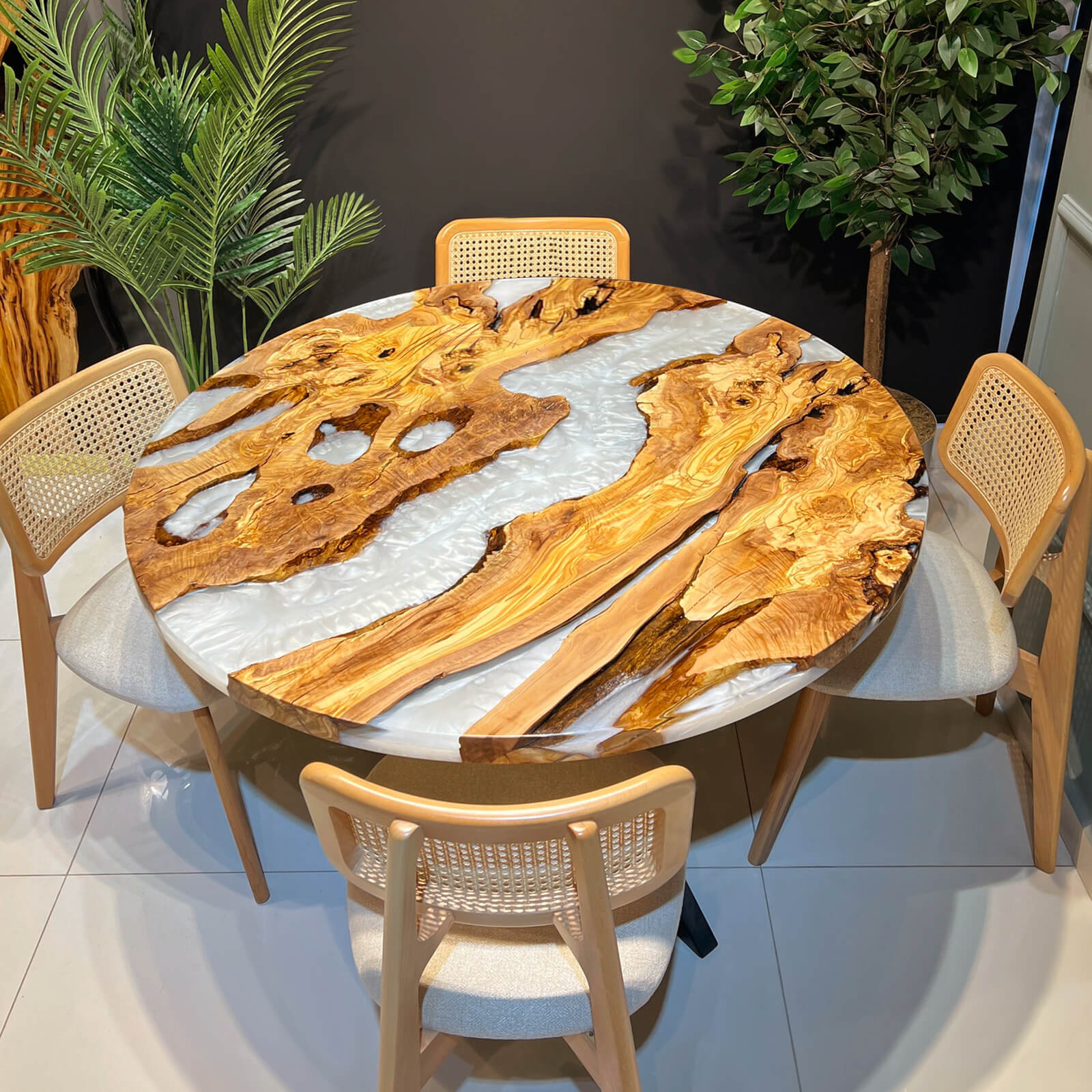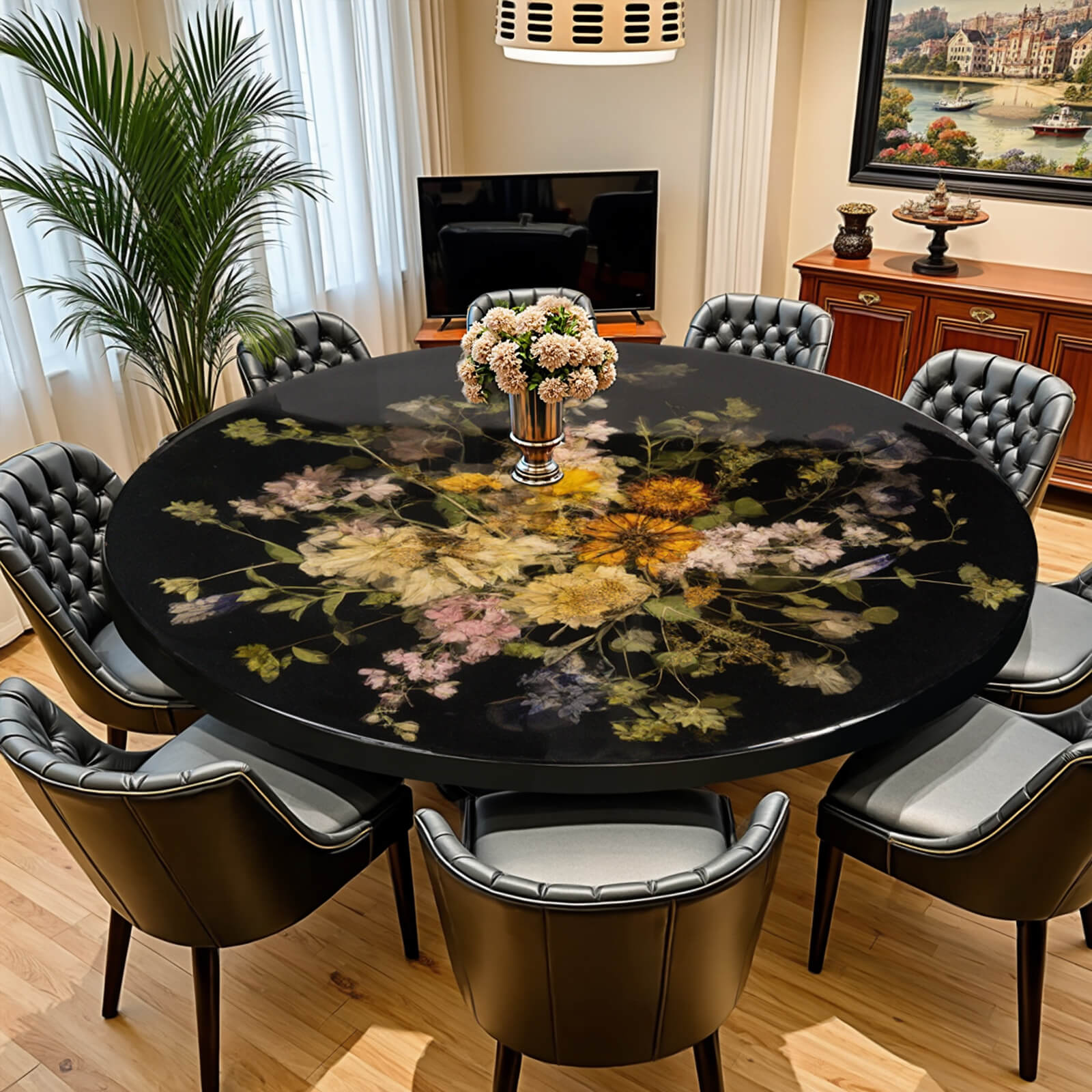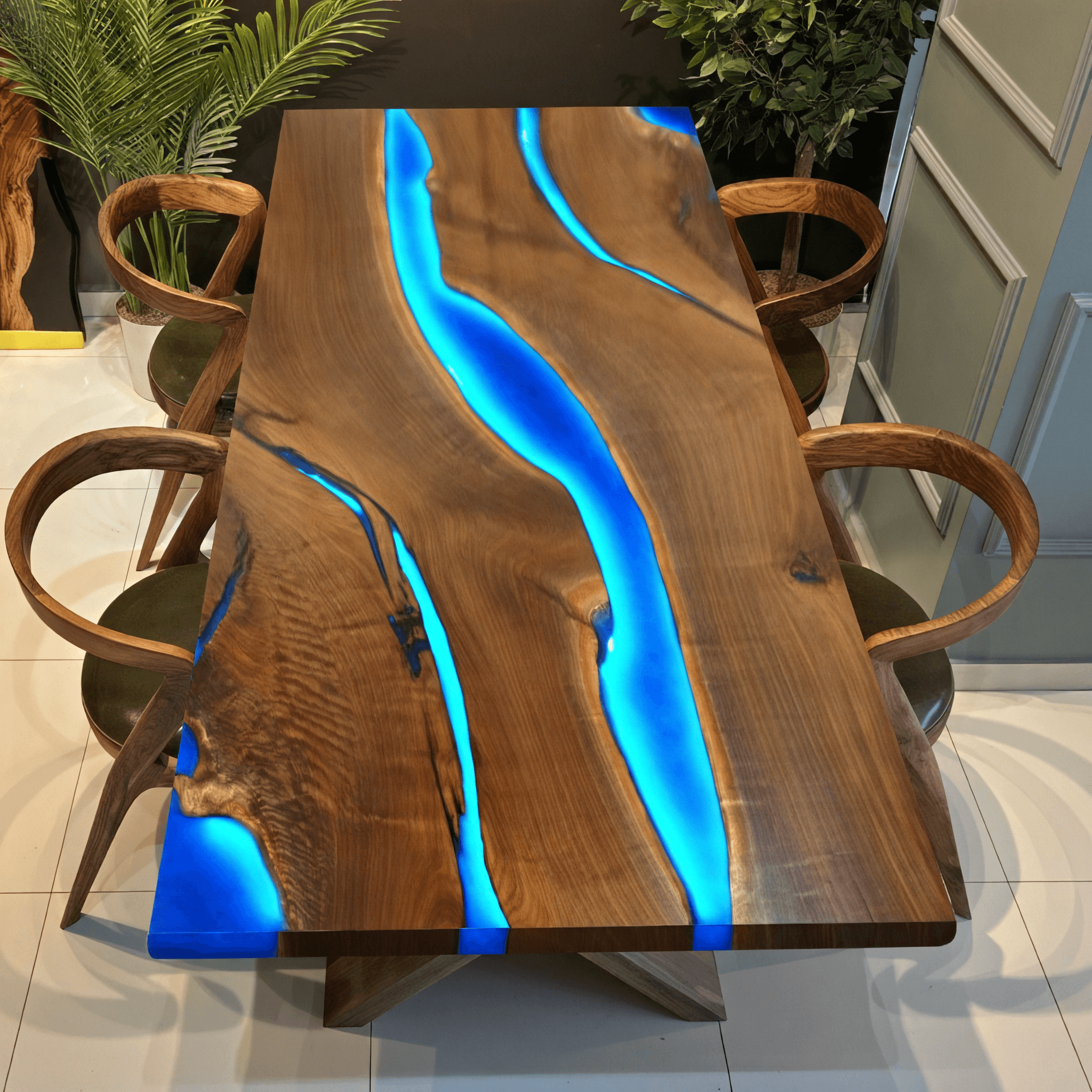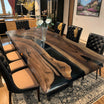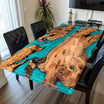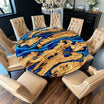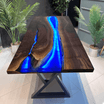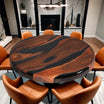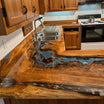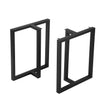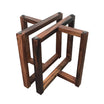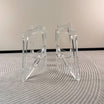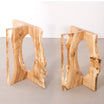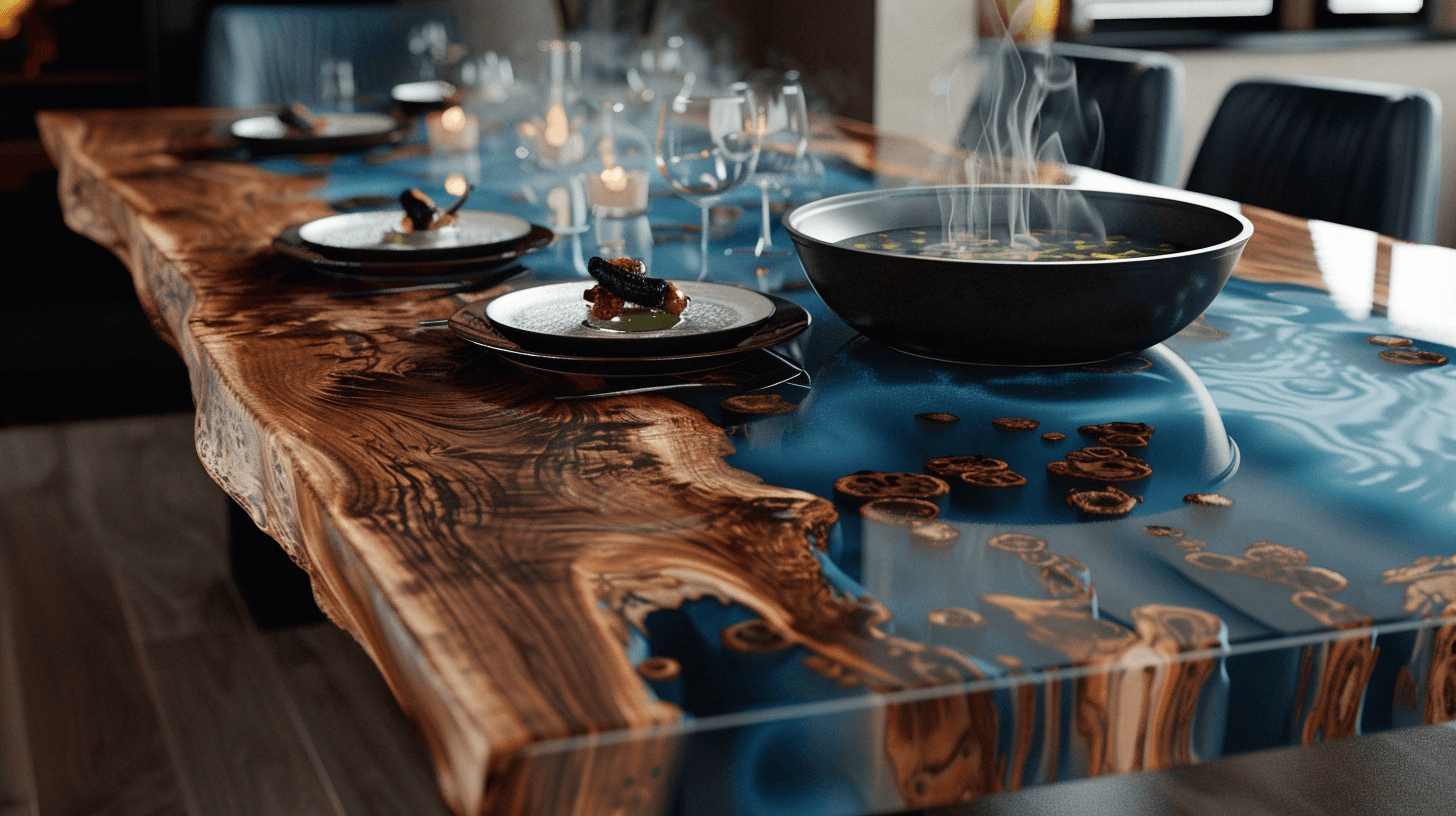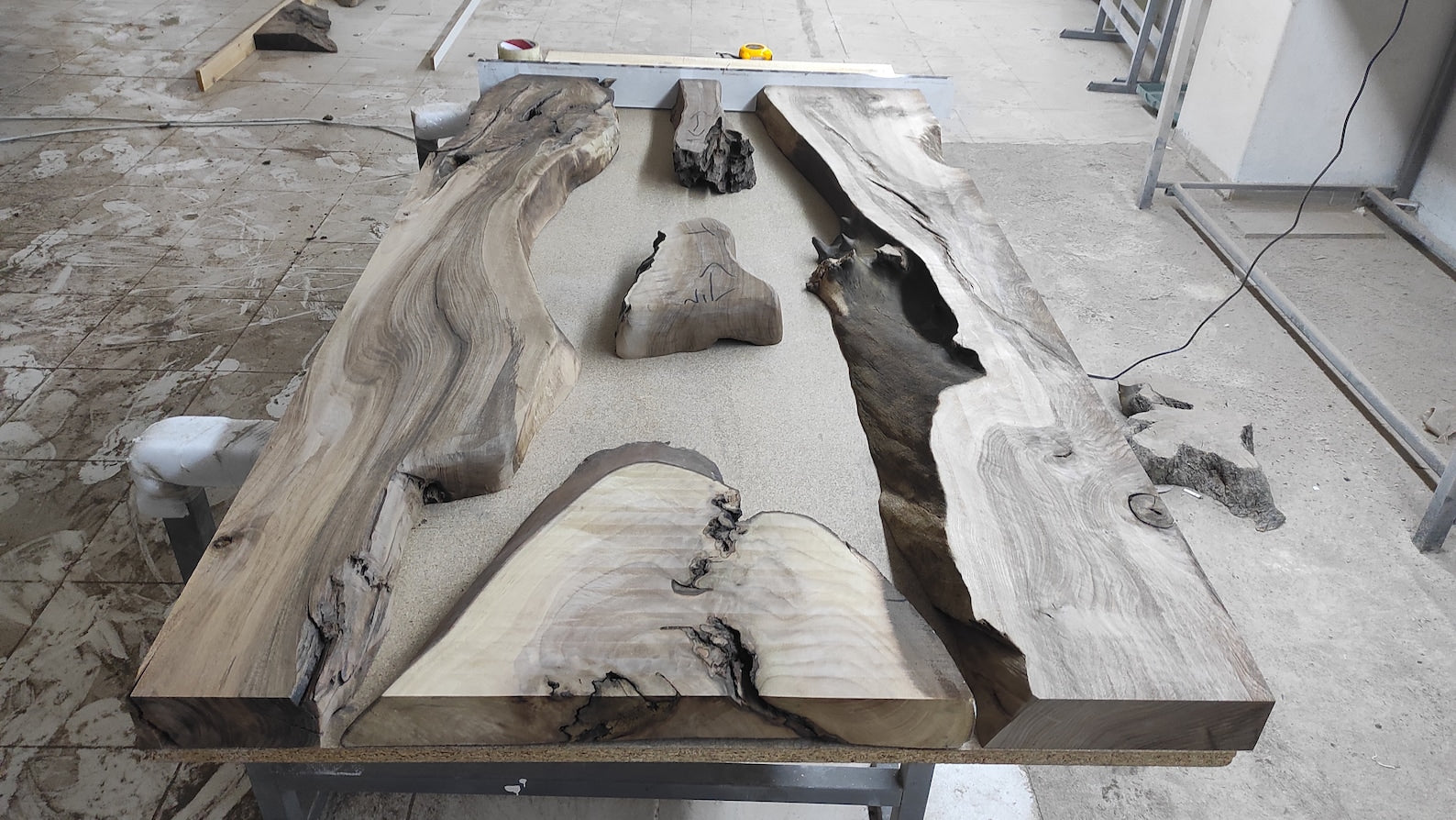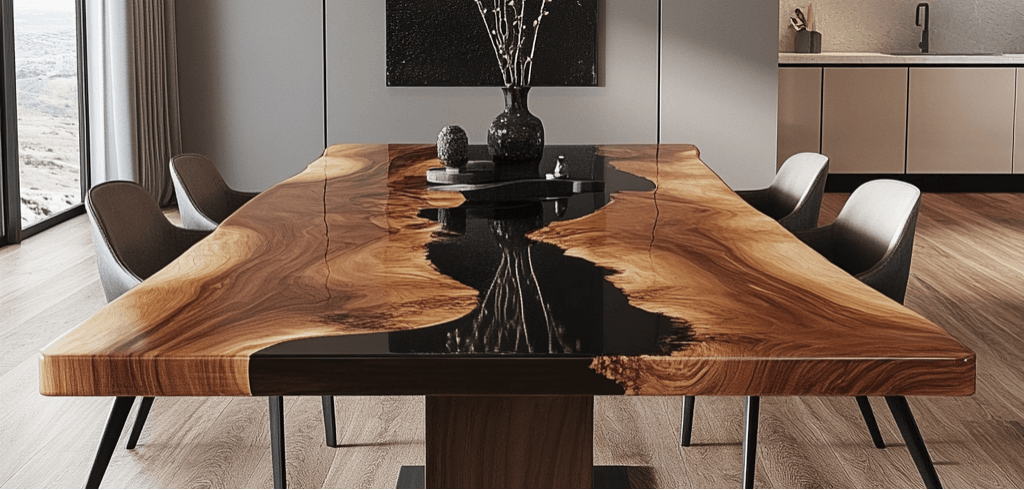If you’ve recently invested in a beautiful epoxy resin table, you might be wondering how to best care for it, particularly when it comes to heat. Epoxy resin tables, with their stunning designs and glass-like finish, can truly elevate a room. However, when it comes to placing hot plates directly on them, the answer is clear: you should avoid it. Let’s explore why.
Why Epoxy Resin and Hot Plates Don’t Mix
While epoxy resin is a durable material, it has specific properties that make it sensitive to high temperatures. Here are a few reasons why placing hot items directly on an epoxy resin table—or any wooden table, for that matter—is not recommended:
-
Potential for Discoloration on Wood
Even on solid wood surfaces, prolonged contact with hot plates can lead to discoloration or “heat rings.” This damage can be difficult to repair and can affect the table’s natural beauty. Wood can lose its color in places exposed to heat, creating uneven tones and patches that are hard to conceal. -
Epoxy Resin Has a Low Softening Point
Epoxy resin’s softening point, or the temperature at which it begins to deform, is relatively low compared to other hard materials. Temperatures above 150°F (65°C) can start to soften or even warp the resin. Hot plates, particularly those fresh from the stove or oven, can easily reach or exceed these temperatures, putting your epoxy surface at risk. Over time, repeated exposure to high heat can lead to more permanent damage, including softening, discoloration, and even peeling. -
Heat Can Compromise Resin Lifespan
Direct heat exposure may not only cause short-term softening but can also accelerate the aging of epoxy resin. This shortens the table’s lifespan and causes it to lose its original clarity, affecting the table’s overall appearance and structural integrity. -
Epoxy Resin's Susceptibility to Staining and Etching
High heat can cause stains to set in more easily, especially if the resin surface is already slightly softened. This can lead to stains from food or drink becoming embedded in the resin, making them difficult to remove. Additionally, sudden temperature changes can cause minor etching on the surface, giving it a worn, uneven look.
Protecting Your Epoxy Resin Table from Heat
To ensure your epoxy resin table remains in top condition, here are a few best practices:
-
Use Heat-Resistant Mats or Trivets
Placing a heat-resistant mat, trivet, or coaster under hot plates or serving dishes is the simplest way to protect your table. These barriers help absorb and disperse the heat before it reaches the surface of the resin, preserving its clarity and preventing any softening or deformation.
-
Avoid Direct Sunlight
Sunlight can also produce heat, which can degrade both wood and resin surfaces. Keeping your table away from direct sunlight or using UV-protective coatings can help minimize heat-related wear.
-
Allow Hot Items to Cool Slightly
If you’re serving food in a hot dish or pot, try letting it cool down slightly before placing it on the table. Even a slight reduction in temperature can make a difference in preventing heat damage.
In Conclusion
An epoxy resin table is a beautiful, versatile piece that can be the centerpiece of your space. However, it’s essential to take a few precautions to keep it in top condition. Avoid placing hot plates directly on the table, as this can lead to softening, warping, and discoloration. By using trivets or heat-resistant mats, you can enjoy your epoxy resin table’s elegance for years to come.
If you found this information helpful and want to learn more about epoxy resin care or explore our collection, feel free to visit our Art Gallery. Ready to design your own unique table? Head over to Design Your Epoxy Table for custom options that suit your style and needs.

